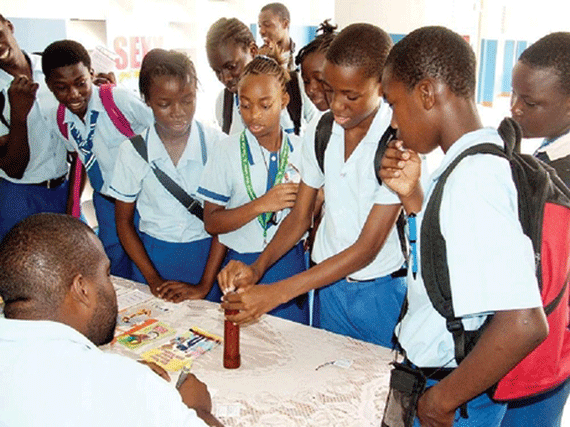
HEALTH and Child Care minister Dr David Parirenyatwa yesterday said his ministry is not distributing contraceptives to children under 10 years of age and does not intend to introduce such a policy. Dumisani Sibanda Assignments Editor
Addressing a Press conference in Harare, Parirenyatwa dismissed reports his ministry had already started distributing contraceptives to adolescents at 91 centres run by the Zimbabwe National Family Planning Centre saying the reports were based on “misinformation”.
Director of family health in the ministry, Bernard Madzima, was quoted in the State media last weekend saying the government was now pushing for the introduction of a legal framework to support the distribution of contraceptives to adolescents.
However, Parirenyatwa said his ministry did not have “a policy that advocates giving contraceptives to underage children”.
“We are very clear about it. Clear because we are guided not only by the policy but by the sociocultural and medical prerogative in our country.
“Certainly as you know, the age of majority is 18 years and the age of marriage is 16 years,” Parirenyatwa said.
Parirenyatwa, flanked by his deputy Paul Chimedza, permanent secretary Gerald Gwinji and director for infectious diseases, Gibson Mhlanga, said children were receiving “age-specific” sex education at schools.
“What we pride ourselves in is to give information; to give education to those children and you are aware that this ministry is in the forefront of fighting HIV and Aids and of course if we were to advocate for sex for 10-year-olds you can imagine how the pandemic can spread,” Parirenyatwa said.
- Chamisa under fire over US$120K donation
- Mavhunga puts DeMbare into Chibuku quarterfinals
- Pension funds bet on Cabora Bassa oilfields
- Councils defy govt fire tender directive
Keep Reading
“What we have done is actually advocate for as much a delay as possible in a youth’s sexual debut. When I say sexual debut I mean the age at which they start having sex.
“We always advocate that youths delay their sexual debut as much as possible certainly until marriage; that is what we advocate for. So our policy clearly does not talk about giving contraceptives to underage children.”
The report torched mixed reactions with parents condemning the move while adolescents hailed the idea saying most of them were already sexually active.
Parirenyatwa said the last survey conducted had shown the country’s average sexual debut was 15 years and nine months.
He said even for college students his ministry encourages abstinence, but in the case of those who felt the strong urge for having sex, they should use condoms and other contraceptives.
He said cases of unwanted pregnancies and abortion, especially in the age group of 17 to 24 was “high”.
“That is why we talk about safe sex (in the 17-24 age groups). As a ministry, we are also against sexual abuse of children and of course sexual assault in terms of rape among adults,” he added.










